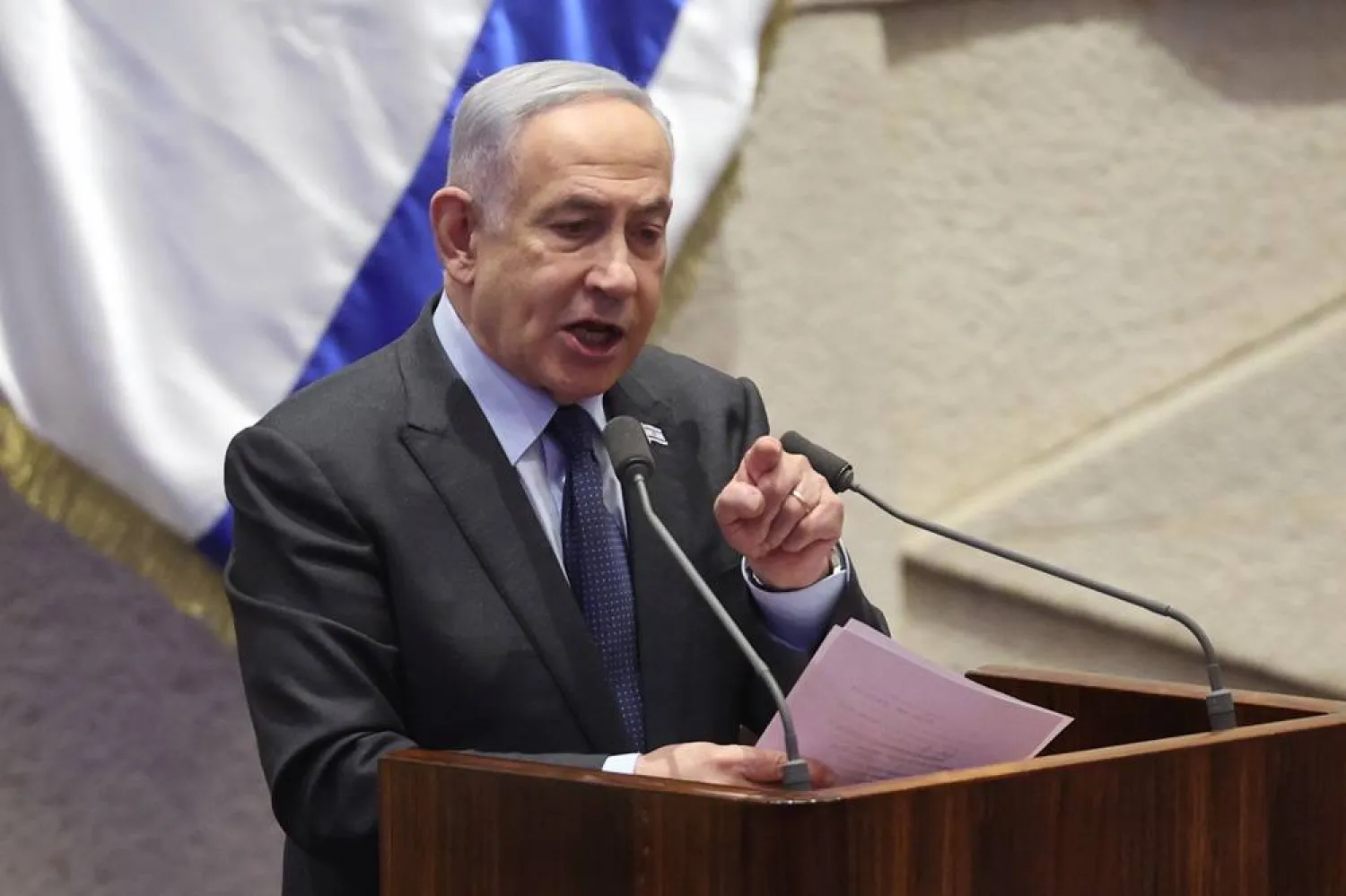Israeli lawmakers voted on Wednesday to back Prime Minister Benjamin Netanyahu's rejection of any "unilateral" recognition of a Palestinian state as international calls have grown for the revival of Palestinian statehood negotiations.
Issued amid the war in Gaza between Israel and Palestinian group Hamas, the symbolic declaration also received backing from members of the opposition, with 99 of 120 lawmakers voting in support, the Knesset spokesperson said.
The Israeli position says that any permanent accord with the Palestinians must be reached through direct negotiations between the sides and not by international dictates.
"The Knesset came together in an overwhelming majority against the attempt to impose on us the establishment of a Palestinian state, which would not only fail to bring peace but would endanger the state of Israel," said Netanyahu.
The vote drew condemnation from the Palestinian Foreign Ministry, which accused Israel of holding the rights of the Palestinian people hostage by forceful occupation of territories where Palestinians seek to establish a state.
"The ministry reaffirms that the State of Palestine's full membership in the United Nations and its recognition by other nations does not require permission from Netanyahu," it said in a statement.
Little progress has been made towards achieving a two-state solution - a Palestinian state in the occupied West Bank and in Gaza alongside Israel - since the signing of the interim Oslo Accords in the early 1990s.
Among the obstacles impeding Palestinian statehood are expanding Israeli settlements in territories Israel captured in the 1967 Middle East war. Most countries regard the settlements, which in many areas cut Palestinian communities off from each other, as a violation of international law.
The two-state solution has long been a core Western policy in the region. Since the outbreak in October of the Gaza war, the United States has been trying to promote steps toward the creation of a Palestinian state as part of a broader Middle East deal that would include other Arab states officially normalizing relations with Israel.









